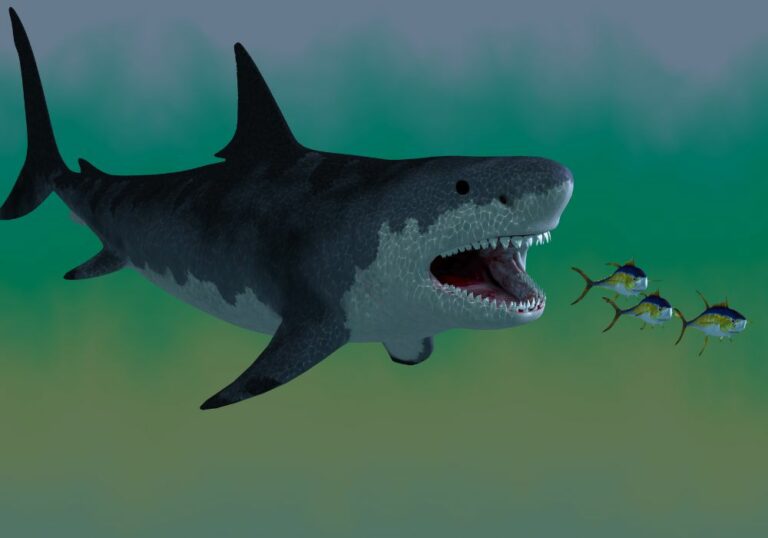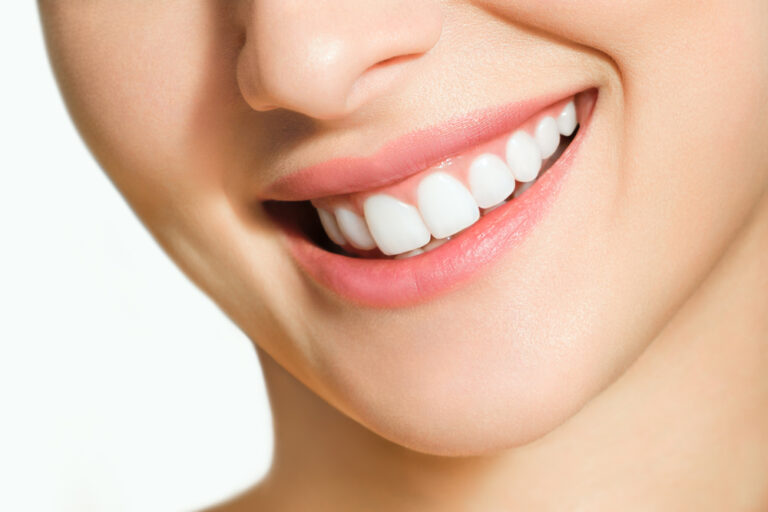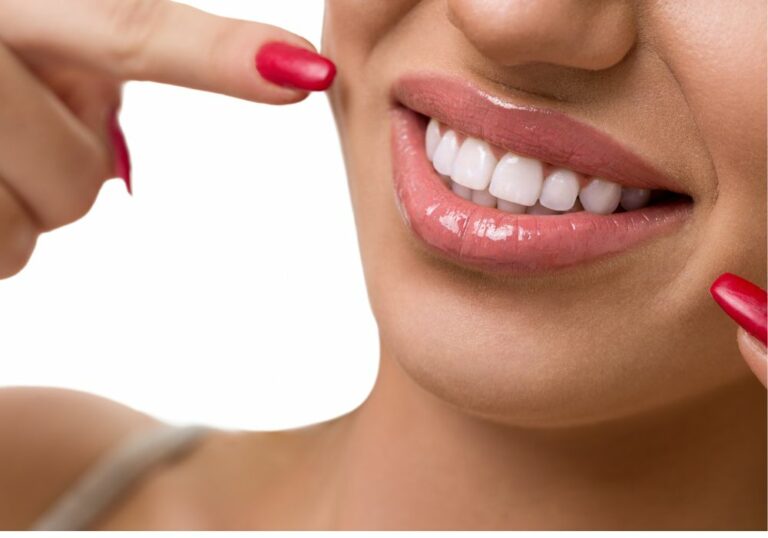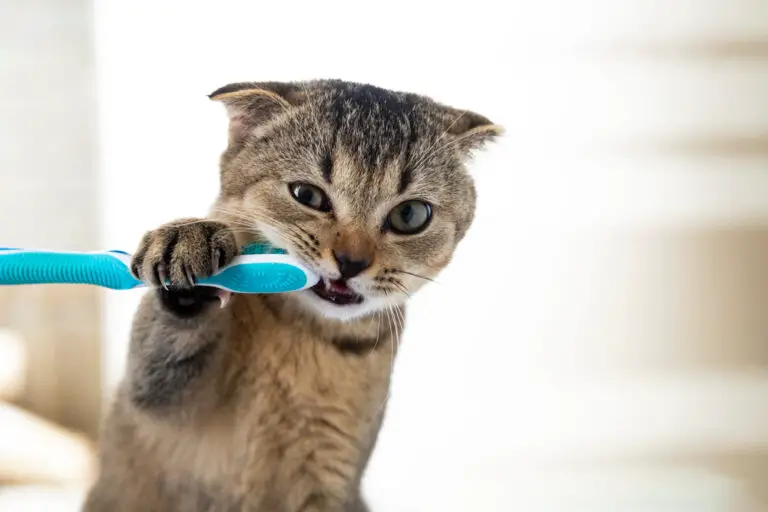What is dehydration?
Dehydration occurs when the body loses more fluid than it takes in. It’s a potentially serious condition that happens when:
- You’re not drinking enough water and other fluids to replace what’s lost naturally through breathing, sweat, urine, and bowel movements.
- You lose excessive amounts of fluid from vomiting, fever, diarrhea, frequent urination, or heavy sweating during exercise or in hot weather.
- You have a medical condition that increases fluid losses from the body.
There are three main types of dehydration:
- Hypohydration – This is the most common type, when you lose water and salts from sweating. It happens gradually over hours or days.
- Intracellular dehydration – This is when you lose water but retain or gain salts. It occurs with diarrhea or vomiting when the body flushes out pure water.
- Hypertonic dehydration – When you lose both water and salts rapidly, like from prolonged heavy sweating or diabetes complications.
Even mild dehydration of just 1-2% of your body weight in fluid losses can lead to symptoms like:
- Thirst and dry mouth
- Decreased urine output; dark yellow urine
- Fatigue, lethargy, weakness
- Headache
- Dizziness
- Dry skin and mucous membranes
Moderate dehydration of 3-5% body weight loss causes more severe effects:
- Muscle cramps
- Irritability and confusion
- Sunken eyes; no tears when crying
- Rapid heart rate and breathing
- Fever
- Little or no urination
Severe dehydration of over 10% fluid loss is a medical emergency. Symptoms may include:
- Extreme thirst
- Shriveled skin
- Seizures
- Unconsciousness
- Organ failure
Infants, young children, older adults, endurance athletes, outdoor workers, and those with certain medical conditions are at higher risk of dehydration. It’s essential to recognize the signs early and take steps to rehydrate before it becomes dangerous.
Now that we’ve looked at what dehydration entails, can it also lead to teeth chattering? Let’s explore the connection next.
Can dehydration cause teeth chattering?
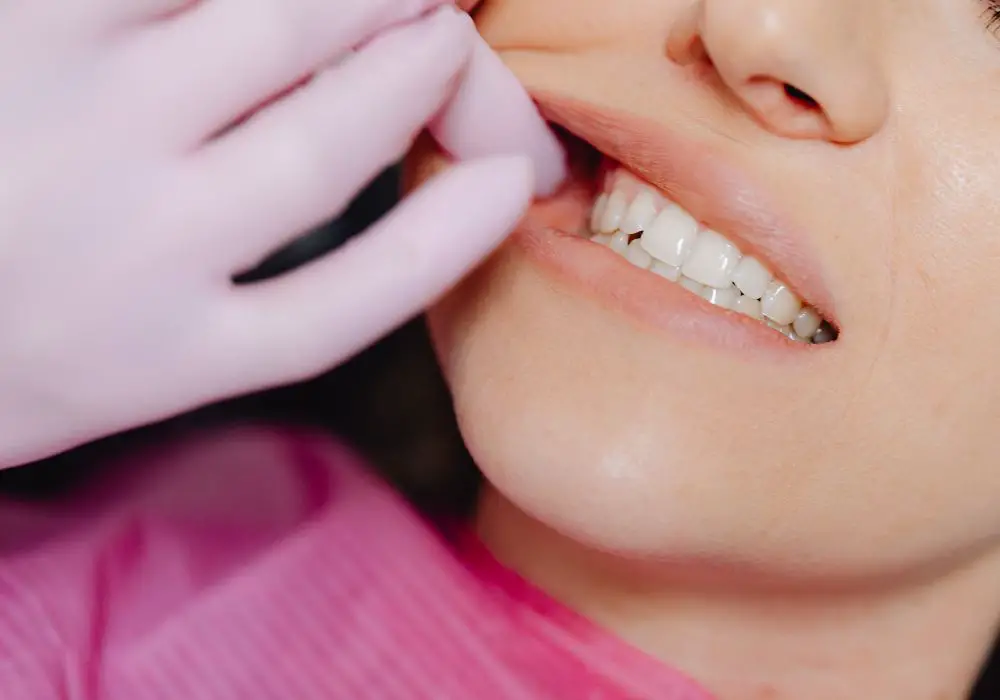
Yes, dehydration can sometimes result in involuntary teeth chattering and jaw tremors. Here are three main ways dehydration provokes this response:
1. Electrolyte imbalance
Electrolytes are essential minerals in your body fluids that carry an electrical charge. The main electrolytes include:
- Sodium
- Potassium
- Calcium
- Magnesium
- Chloride
- Bicarbonate
These electrolytes have crucial roles in nerve impulses, muscle contractions, fluid balance, and maintaining the acid-base (pH) level in your blood and cells.
Your kidneys are responsible for precisely regulating electrolyte concentrations in the bloodstream. But when you’re dehydrated, the kidneys conserve water instead of excreting it. This disrupts optimal electrolyte levels.
Specifically, studies show that dehydration tends to lower sodium and calcium levels in the blood. This electrolyte imbalance can overstimulate the nerves and muscles, including the jaw muscles that control the opening and closing of your mouth.
Involuntary contractions of these muscles result in teeth chattering as the jaw trembles up and down rapidly. Doctors refer to this as latent tetany. It may resolve once you restore hydration and normalize electrolyte concentrations.
2. Fight-or-flight response
Dehydration stresses all the body’s systems. This triggers your sympathetic nervous system to release stress hormones like cortisol and adrenaline – part of the “fight-or-flight” response.
This prepares your body to cope with an emergency by:
- Increasing heart rate and blood pressure
- Speeding up breathing
- Slowing digestion
- Tensing muscles
- Sharpening focus and reflexes
Chattering teeth may be one physical manifestation of your body’s stress reaction to dehydration. The muscles tremble and contract involuntarily under the influence of the hormones.
Along with chattering teeth, you may experience other effects like anxiety, trembling hands, and an uneasy feeling. Rehydrating your body and using relaxation techniques helps resolve these symptoms.
3. Other mechanisms
A few other ways dehydration may contribute to teeth chattering include:
- Lower blood pressure – Fluid loss lowers blood volume, which reduces blood pressure. Drops in blood pressure reflexively activate tremors as the body attempts to increase circulation to the brain and heart.
- Hormone fluctuations – Dehydration alters release of hormones like vasopressin and aldosterone that control water retention and mineral balance in the blood. The hormone shifts may play a role in muscle tremors.
- Potassium shifts – Losing potassium during dehydration causes shifts of the mineral in and out of cells. This interrupts signaling between muscle and nerve cells, possibly resulting in twitching.
- Fatigue – Severe tiredness from dehydration makes it harder to control voluntary muscle movements, leading to shaking.
- Anxiety – Dehydration physical symptoms prompt anxiety in some people. Anxiety activates the fight-or-flight response that can cause trembling, including jaw tremors.
As you can see, the combination of electrolyte imbalances, hormone fluctuations, and other systemic effects during dehydration can make the jaws shiver as an involuntary reflex.
What does the research say?

Scientific studies back up the link between dehydration and teeth chattering:
- A 2015 report in the Journal of Clinical and Diagnostic Research found that 22% of dehydrated children exhibited teeth chattering, compared to just 2% of hydrated children. Chattering ceased once the children rehydrated.
- A study in the American Journal of Diseases of Children analyzed cases of involuntary muscle spasms and seizures in infants. Most were found to be caused by dehydration-induced electrolyte disturbances, which resolved with fluid treatment.
- Research in the International Journal of Sport Nutrition and Exercise investigated cyclists exercising in the heat. The most dehydrated cyclists tended to develop muscle cramps and involuntary twitching, indicating disrupted neuromuscular signaling.
- A review in the journal Nutrients explained that marginal intracellular dehydration appears to be a trigger for involuntary muscle contractions and cramps during exercise. Drinking fluid helps normalize electrolyte gradients and hydration status.
- Scientists reported in the Clinical Autonomic Research journal that water drinking induced a significant reduction in resting jaw muscle activity in people prone to teeth clenching. Adequate hydration may minimize involuntary jaw tremors.
Overall, studies link mild to severe dehydration with various forms of muscle hyperactivity and tremors – including teeth chattering in some individuals.
Other potential causes
While dehydration is one cause of teeth chattering, it’s important to note there are other medical and lifestyle factors that can also trigger jaw tremors:
Hypothermia or low body temperature
When your core body temperature drops significantly below normal, your body begins shivering and chattering teeth strongly as a means to generate heat through rapid muscle contractions.
Causes include:
- Prolonged exposure to cold weather
- Falling into cold water
- Certain medical conditions
- Alcohol intoxication
- Hypothyroidism
The vigorous teeth chattering is usually a good sign in hypothermia, indicating your body is still able to mount a response.
Stress and anxiety
Experiencing acute or chronic stress and anxiety activates your body’s fight-or-flight response, similar to dehydration. The release of stress hormones like cortisol and adrenaline can provoke involuntary tremors, including in the jaw muscles.
Underlying causes may include:
- General anxiety disorder
- Panic attacks
- Phobias
- Post-traumatic stress disorder (PTSD)
- Major life stressors
Parkinson’s disease
This chronic neurodegenerative disorder arises due to dopamine depletion in the brain. It causes progressive loss of muscle control.
Parkinson’s tremor classically starts in the hands, but jaw tremors are also common. Teeth chattering and clenching may even appear in early disease stages before arm tremors begin.
Seizures
During a seizure episode, uncontrolled electrical signals in the brain result in involuntary muscle contractions. This can produce teeth gnashing and chomping motions of the jaw. Seizure-related teeth chattering tends to be rhythmic and forceful.
Vitamin and mineral deficiencies
Lacking key vitamins like B12, folate, and certain minerals including calcium, magnesium, and iron may potentially contribute to muscle tremors and cramping. However, clear evidence directly linking vitamin deficiency to teeth chattering is limited.
Substance use
Stimulant drugs like cocaine, amphetamines, and MDMA cause teeth grinding, jaw clenching, and chattering by overactivating the central nervous system. These effects are temporary but frequent use can damage teeth and oral health.
Some psychiatric medications like SSRIs and dopaminergic drugs may also list jaw tremors as a potential side effect for a small percentage of users.
Neurological disorders
Conditions like multiple sclerosis, amyotrophic lateral sclerosis (ALS), and peripheral neuropathies can sometimes impair neural signaling to the muscles, resulting in episodic tremors and spasms affecting the jaw and teeth chattering.
When is teeth chattering serious?
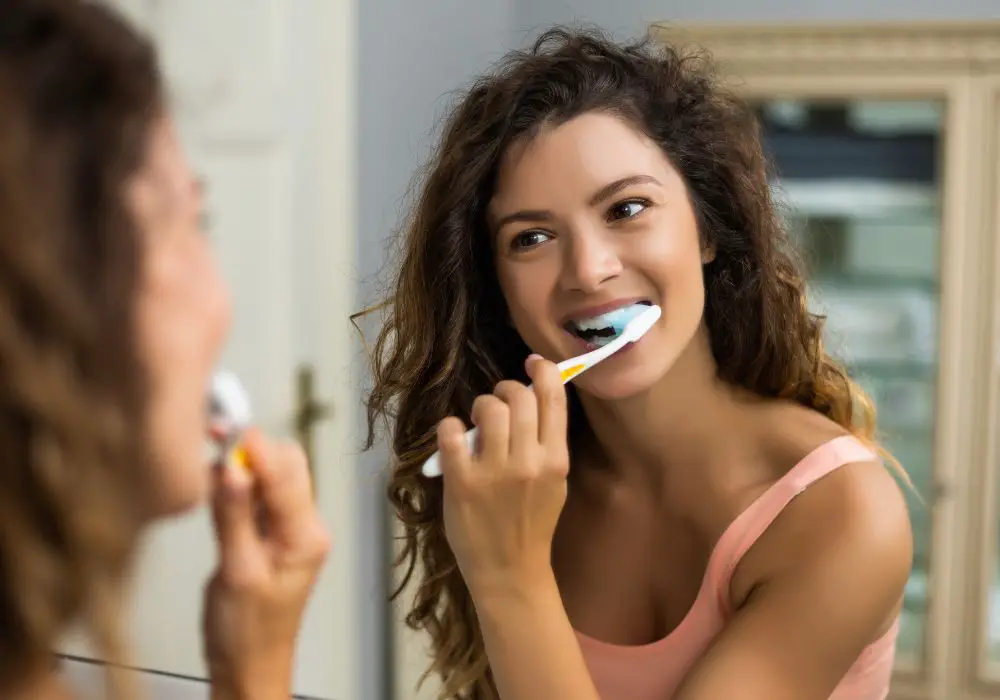
Mild or temporary teeth chattering is generally not concerning on its own, especially if it has an identifiable trigger like cold temperature exposure or transient anxiety. The chattering normally stops once the underlying cause resolves.
However, recurrent episodes of teeth chattering or prolonged, uncontrolled tremors could potentially indicate an underlying medical disorder. Seek prompt medical evaluation if you experience:
- Frequent teeth chattering without an obvious trigger
- Inability to control or stop jaw tremors lasting over 5 minutes
- Impaired ability to chew or speak due to jaw tremors
- Other neurological symptoms like muscle twitching, numbness, or weakness
- Severe headache, confusion, or dizziness along with chattering
Your doctor can check for underlying conditions like:
- Electrolyte imbalances – Sodium, calcium, potassium, or magnesium abnormalities
- Seizures – Epilepsy or seizure disorders
- Motor nerve damage – Peripheral neuropathies, multiple sclerosis, Parkinson’s
- Hormone dysregulation – Thyroid, parathyroid, or adrenal disorders
- Vitamin deficiencies – Particularly vitamins B12 and D
- Anxiety disorders – Generalized anxiety, panic attacks
- Medication side effects – From certain antidepressants, stimulants
Seeking timely treatment is important, as persistent teeth chattering could degrade quality of life and potentially lead to dental damage if caused by an uncontrolled medical condition.
Preventing dehydration

While mild dehydration may cause temporary teeth chattering, recurrent episodes can significantly impact your health. Here are tips to help promote good hydration status:
- Drink plenty of water even when you don’t feel thirsty. Carry a refillable bottle and take frequent sips.
- Choose beverages that have electrolytes like sports drinks, coconut water, oral rehydration salts, milk, and fortified juices.
- Eat fruits and vegetables with high water content – cucumbers, berries, melons, lettuce, tomatoes, celery.
- Monitor your hydration by checking the color and frequency of urination. Dark yellow or infrequent urination signals dehydration.
- Adjust your fluid intake to account for environmental temperatures, humidity, and your activity level.
- Weigh yourself before and after prolonged exercise to gauge fluid losses from sweat.
- Replace electrolytes after heavy sweating by drinking beverages with sodium and potassium.
- Drink extra fluids if you have vomiting, diarrhea, fever, or heat exposure to make up for losses.
- Avoid alcohol and caffeinated drinks as these have a diuretic effect to remove water from your body.
- Be aware of medications that may increase dehydration risk including diuretics, laxatives, diabetes drugs.
Making hydration a priority in your daily habits can help reduce episodes of dehydration-induced teeth chattering. But if it occurs frequently or persists, seek medical advice.
Conclusion
In summary, there appears to be a correlation between dehydration and involuntary teeth chattering or jaw tremors in some individuals.
Mild dehydration can trigger teeth chattering due to electrolyte disturbances, activation of the fight-or-flight response, drops in blood pressure, and other physiological effects. Research indicates adequate hydration can minimize these involuntary muscle contractions.
However, teeth chattering also has numerous other potential causes beyond dehydration. These include chilling, anxiety, neurological conditions like Parkinson’s disease, seizures, medication side effects, and more.
Mild transient teeth chattering is not necessarily concerning. But recurrent unexplained episodes or severe jaw tremors interfering with eating warrant medical evaluation for an underlying condition.
Staying well hydrated through proper fluid intake can help safeguard against dehydration and associated teeth chattering. But be sure to consult your doctor if it occurs frequently or severely to rule out other health disorders requiring treatment. Addressing the root cause is key to managing perplexing teeth chattering when it happens.
Frequently Asked Questions
How quickly can dehydration trigger teeth chattering?
Teeth chattering from dehydration may begin within a few hours or days of inadequate fluid intake or losing significant volumes of fluid. Mild to moderate dehydration tends to take longer to manifest symptoms than severe dehydration.
Can dehydration cause permanent teeth chattering?
No, dehydration itself does not directly lead to permanent teeth chattering or jaw tremors. Once you replenish fluids and electrolytes, teeth chattering from dehydration should resolve. However, prolonged untreated dehydration can potentially cause permanent organ damage.
Can teeth chattering indicate kidney problems?
Possibly. Since the kidneys regulate hydration and electrolyte balance, acute or chronic kidney disease can in some cases result in muscle twitching, cramps, and tremors like teeth chattering. Seeking prompt medical attention for persistent chattering is recommended.
How do you stop anxiety-related teeth chattering?
It can be very difficult to instantly stop teeth chattering caused by anxiety or stress. Techniques like focused deep breathing, relaxing the jaw muscles, and distraction may help calm the symptoms. Addressing the underlying source of anxiety through counseling is also advisable. Medications are sometimes prescribed in severe cases.
When should you see a doctor for teeth chattering?
You should see your doctor promptly if you experience repeated episodes of teeth chattering with no obvious trigger, or any chattering lasting more than 5 minutes. Seek emergency care for severe or prolonged chattering along with confusion, loss of consciousness, inability to control movements, or trouble breathing.

